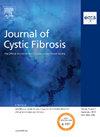Supporting adherence to the cystic fibrosis regimen: Development and validation of The Daily Care Check-In (DCC)
IF 6
2区 医学
Q1 RESPIRATORY SYSTEM
引用次数: 0
Abstract
Background
The cystic fibrosis (CF) regimen is time-consuming and burdensome leading to barriers to self-management. This mixed-methods study developed the Daily Care Check-in (DCC) that is specific to the barriers faced by people with CF (PWCF) and evaluated its validity.
Methods
Qualitative methods were used to identify barriers to self-management and develop items, with “think aloud” cognitive interviews conducted to refine the items. A multisite, cross-sectional study was conducted to test the internal consistency, test-retest reliability, and validity of the DCC scores, comparing them to objective medication adherence (composite medication possession ratio (cMPR)) and psychosocial measures (self-efficacy, medication beliefs, executive functioning, depressive and anxiety symptoms, treatment burden, and treatment complexity).
Results
The DCC (18 items) includes two scales: Occurrence (score range 0–18) and Interference (score range 0–90). 405 participants completed the DCC, 344 (85 %) completed the survey, and 365 (90 %) had a cMPR calculated. On average, 6.8 barriers were reported (SD = 4.2 Occurrence Scale), and the Interference Scale had a mean score of 18.4 (SD = 14.0). Reliability was acceptable to good. cMPR was negatively correlated with the DCC (rho=-0.26, Occurrence and rho = -0.31, Interference, p-values<0.0001). A priori hypotheses between the DCC and the other measures were supported and demonstrated construct validity.
Conclusions
This study provides evidence supporting the validity of the DCC for assessing the presence and impact of barriers to CF self-management, including medication adherence. Formal screening of self-management barriers (e.g., using the DCC) should be considered to facilitate conversations with the care team and identify tailored interventions to support CF self-management.
支持坚持囊性纤维化治疗方案:日常护理签到 (DCC) 的开发与验证。
背景:囊性纤维化(CF)疗程耗时且负担沉重,导致患者在自我管理方面遇到障碍。这项混合方法研究针对囊性纤维化患者(PWCF)面临的障碍开发了日常护理签到(DCC),并对其有效性进行了评估:方法:采用定性方法确定自我管理的障碍并开发项目,同时进行 "大声思考 "认知访谈以完善项目。我们进行了一项多地点横断面研究,以检验 DCC 分数的内部一致性、测试-再测试可靠性和有效性,并将其与客观用药依从性(复合药物持有率 (cMPR))和社会心理测量(自我效能、用药信念、执行功能、抑郁和焦虑症状、治疗负担和治疗复杂性)进行比较:DCC(18 个项目)包括两个量表:结果:DCC(18 个项目)包括两个量表:发生(分值范围 0-18)和干扰(分值范围 0-90)。405 名参与者完成了 DCC,344 人(85%)完成了调查,365 人(90%)计算了 cMPR。报告的障碍平均为 6.8 个(SD = 4.2 个发生量表),干扰量表的平均分为 18.4 分(SD = 14.0 分)。cMPR 与 DCC 呈负相关(rho=-0.26,发生量表;rho=-0.31,干扰量表,p 值):本研究提供的证据支持了 DCC 在评估 CF 自我管理障碍(包括服药依从性)的存在和影响方面的有效性。应考虑对自我管理障碍进行正式筛查(如使用 DCC),以促进与护理团队的对话,并确定支持 CF 自我管理的定制干预措施。
本文章由计算机程序翻译,如有差异,请以英文原文为准。
求助全文
约1分钟内获得全文
求助全文
来源期刊

Journal of Cystic Fibrosis
医学-呼吸系统
CiteScore
10.10
自引率
13.50%
发文量
1361
审稿时长
50 days
期刊介绍:
The Journal of Cystic Fibrosis is the official journal of the European Cystic Fibrosis Society. The journal is devoted to promoting the research and treatment of cystic fibrosis. To this end the journal publishes original scientific articles, editorials, case reports, short communications and other information relevant to cystic fibrosis. The journal also publishes news and articles concerning the activities and policies of the ECFS as well as those of other societies related the ECFS.
 求助内容:
求助内容: 应助结果提醒方式:
应助结果提醒方式:


